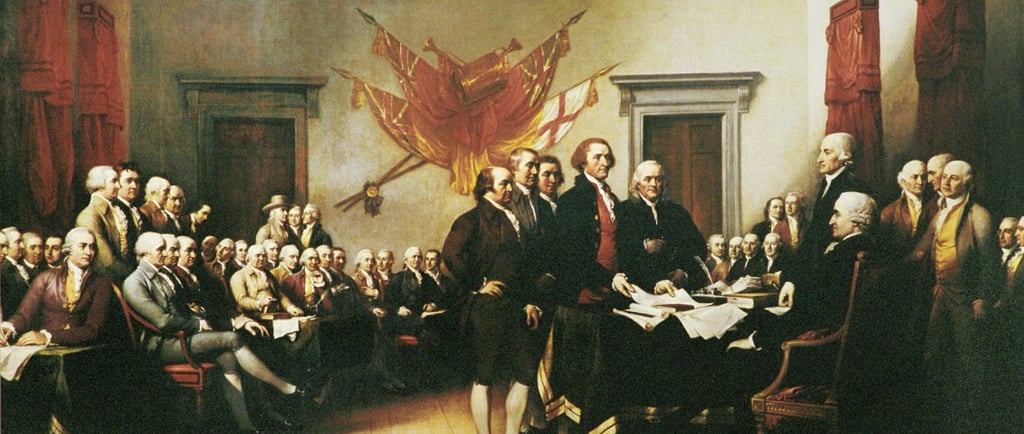A Latin Ode for America's Birthday
Every so often at the University of Kentucky, someone would mention the small book of poetry titled "Chelys Hesperia" (1825, by Samuel Wilson), usually in connection with the historic nickname for Lexington, “Athens of the West”. Not realizing that poor scans of it were available online, I along with some friends produced a scan of the original and transcribed it. Some excerpts of the work, which is about to see its 200th anniversary, are provided here.
Jackson Perry
6/29/20242 min read


ODA I.
Ad Diem Natalem Libertatis Americæ Septentrionalis.
Diva Libertas, Heliconis alti,
Dic modos dulces animum moventes;
Julii mensis celebrare Quartum
Carmine vellem.
Alme Sol, curru referas nitente
Semper et ludos, hilares et horas:
Concinant cives memorem diemque
Voce canora.
Hic dies festus rediens quotannis,
Eximet nobis animi dolores;
Namque Libertas precibus benignam
Praebuit aurem.
Surge Lux laudanda et honore digna,
Quo die patres juga disciderunt:
Quo die dextra eripuere forti
Sceptra tyrannis.
Britonum rex nam dominatione
Ferrea, vincla imposuit colonis:
Jura sed cives bene vindicarunt
Belligerantes.
Signa tunc tollens radiata stellis,
Gloriam æternam America est adepta;
Hostium turmas superavit omnes
Numine ducta.
Liberum jus nunc manibus tenemus;
Vivimus tuti et nemorum sub umbra:
Affluit tellus Cerere, atque abundat
Lacteque melle.
En! superbis regibus et fugata
Cara Libertas, oriente ab ora
Advenit exul, simul inferensque
Palladis artes.
Sacra nunc Phœbo melicisque Musis
Templa fundantur: nucibus relictis,
Imbibunt haustus dociles alumni ex
Fonte perenni.
Floreas longum, America O beata;
Libera et felix vigeas in aevum:
Filii juncti et maneant Columbi
Unanimesque.
The first poem also provides the reason for the book’s existence: celebrating the approaching fiftieth anniversary of the Declaration of Independence. Libertas is described as a goddess moving the author, Samuel Wilson, to lofty praise of the holiday. The goddess herself, compared to the sun, honors the day when the founding fathers cut to pieces George III’s yoke. Throughout the poems there is a mix of pagan and Christian imagery. Here, America is a land abundans lacte melleque and patriots impelled by a divine numen. The solar imagery is especially apt, as she rises on the Eastern coast as an exile spreading westward.
The most interesting part, however, comes in at the end. Libertas has been described as alma and Heliconis alti at the beginning. In the final three stanzas, this is expanded on. She brings artes Palladis with her, and founds temples to Apollo and the muses for the children who have reliquerunt nuces. For Wilson, the light of liberty is directly connected to his school, Transylvania University, that provides a home for these poems. That institution, still around today, founded the University of Kentucky.
Wilson imagines a glorious past and an even brighter future proceeding on the same lines. This conceit is somewhat undercut by the errors in the poem—tyrannis, fugata—and his own admission about their printing limitations. Neither the present nor the future was as Samuel Wilson imagined it. It is hard to read his final prayer for a nation of filii Columbi unanimes and not think of either the forgotten members of that nation in the slave quarters of Henry Clay’s estate, or the Civil War that would rip through Lexington and, of course, the whole country decades later.
For more American Latinity, see Contubernales Books’ Chelys Hesperia by Samuel Wilson and Washingtonii Vita by Francis Glass.
